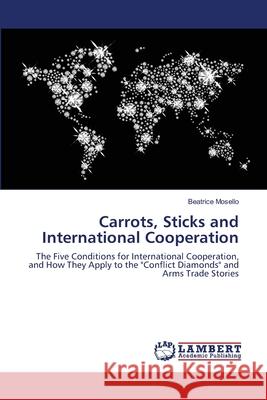Carrots, Sticks and International Cooperation » książka
Carrots, Sticks and International Cooperation
ISBN-13: 9783659134258 / Angielski / Miękka / 2012 / 208 str.
The connection between diamonds and bloody civil conflicts in a number of African countries has made the headlines of newspapers all since the end of the 1990s. To resolve this disturbing issue, the international community has come up with the Kimberley Process Certification Scheme (KPCS). This work fundamentally investigates the conditions that made the KPCS possible in the first place. Drawing from the international relations literature on conflict and cooperation, we propose that international cooperation in the case of conflict diamonds was facilitated by five main conditions, regarding the inclusivity of the negotiation process, the presence of a transnational action network, the credibility of threats and commitments, and the self-enforcing nature of the scheme itself. Subsequently, we apply our analysis to the case of the current negotiation process for an Arms Trade Treaty (ATT), thereby confirming our findings that international cooperation leads to optimal results only when all concerned actors are involved, information is adequately shared, credible commitments and threats are made and, most importantly, there is enough willingness to act together.











